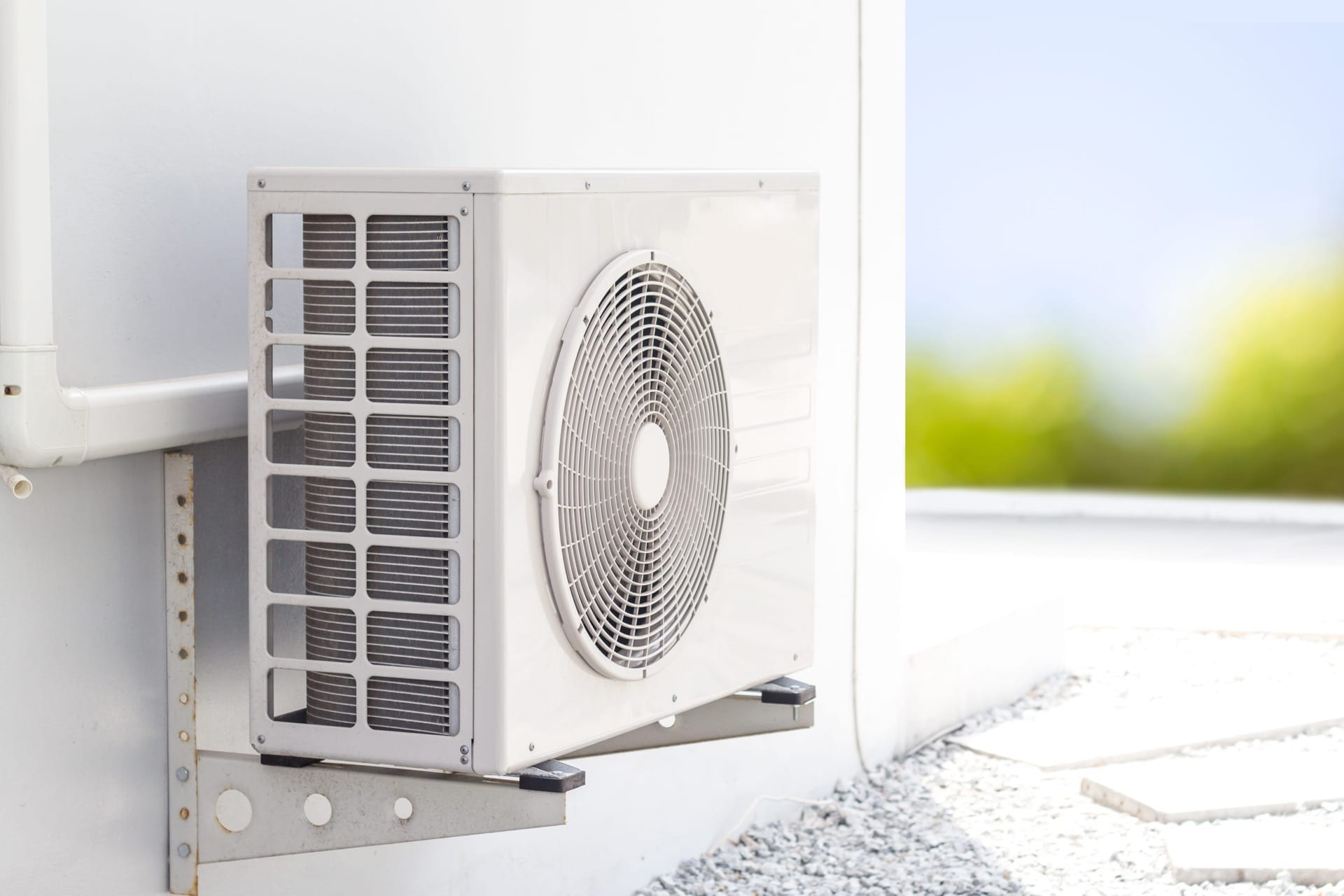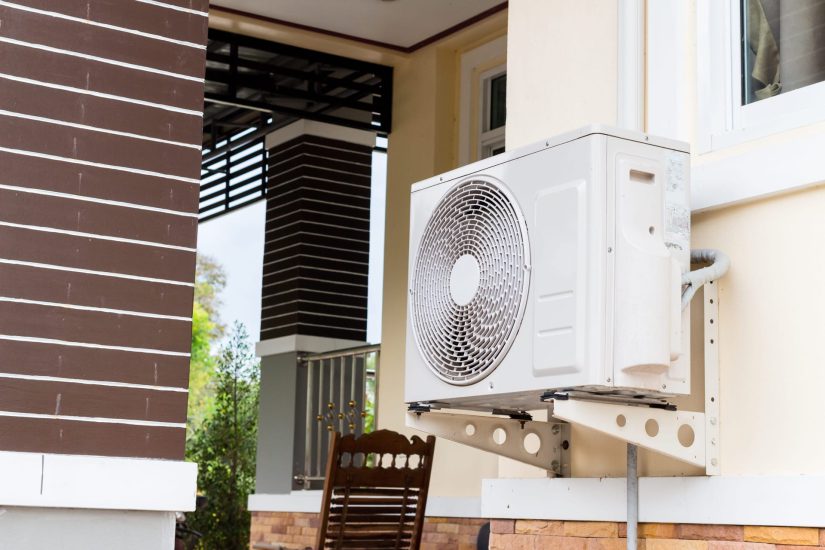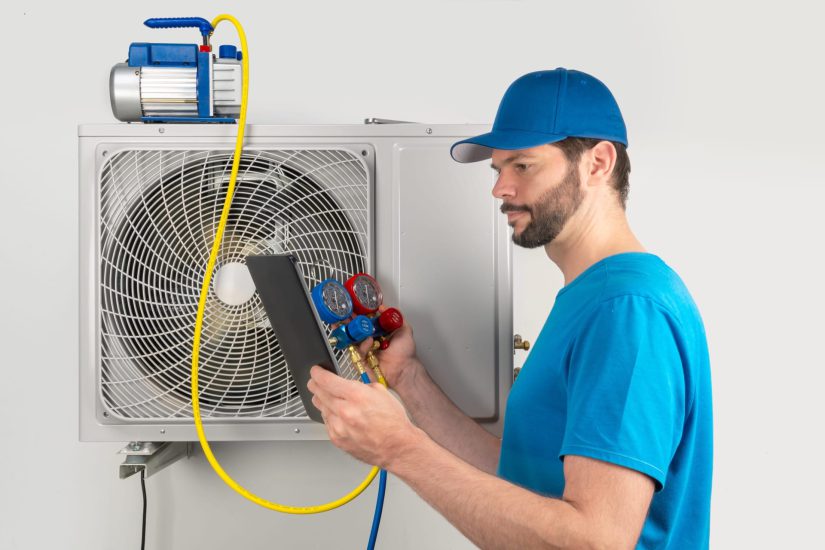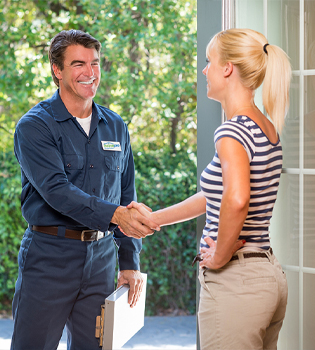
Your air conditioning system is an integral part of your home. It runs in the background, keeping the climate at a comfortable temperature while eliminating humidity. On Houston’s hottest days, it is likely something you’re incredibly grateful to have.
But as your air conditioner gets older, you may notice its performance starting to decline. While performing maintenance services on an air conditioning unit can prolong your AC unit’s lifespan, however, the system won’t last forever.
Average Air Conditioner Lifespan
The average lifespan of an air conditioner is 10 years, but that life expectancy can vary depending on several factors.
For starters, this expected lifespan can be altered by the quality of installation. This appliance won’t last as long if things were improperly installed or if you failed to maintain it throughout the years.
Additionally, your climate preferences can also impact your air conditioner’s lifespan. Air conditioning systems are impacted by the frequency of use—and in places like Houston where it can get unfathomably hot, the average lifespan of your AC will be about 10 years.
Factors That Impact the Life Expectancy of Your AC Unit
The biggest factors that will determine the ultimate longevity of your air conditioning unit are:
- Whether it is the proper size for your home
- The quality of the installation
- Your personal comfort preferences
- System wear and tear
- Regular high humidity
- Whether you’ve kept up with regular maintenance
The average life of most AC units is 10 years, but that time could be shortened by poor upkeep and environmental factors.
How Do I Know If My Air Conditioner Needs to Be Replaced?
Unless your air conditioner is only a couple of years old, you may be wondering if the time has come to replace it. After all, if it’s not dead, why bother? Can’t it be repaired by an HVAC technician? In some cases, it may be best to consider an air conditioner replacement.
With a unit that is approaching the end of its years, these are the things that will make you want to consider air conditioner replacement.

Your Air Conditioner Isn’t Cooling Your Home Properly
In a newer unit, you may only need a repair. But if your air conditioner is older and your home is not cooling, that’s a problem. This uncomfortable situation may mean it is time for a replacement.
The graphic below reveals just how much trouble common air conditioning problems can cause. If your unit is older, it may be time to replace it rather than continue making frequent repairs.
Your AC Unit Runs Too Long
When your central air conditioning system turns on, it should run for 15 to 20 minutes before shutting off. If your AC runs longer than that or continues to run constantly on those hot Houston summer days, something isn’t right.
You Hear Strange Noises
An AC system will make noises when it runs, but those noises should never be high-pitched. Nor should you hear grinding, screeching, or squeaking sounds. Some of these odd noises may mean a simple repair is in order. However, the older the unit, the more costly repairs will be needed.
Something Is Leaking
Problems with your cooling system can usually be spotted when you see something leaking. As an air conditioner gets older, leaking refrigerant can be a huge and dangerous problem. Repairs could be expensive, and you’ll likely be better off with a replacement.
You Have Higher Energy Bills
Even if your air conditioner seems to be running fine, your energy bill may tell a different story. Higher energy bills are an indication that your older unit isn’t energy efficient. Upgrading to a new air conditioning unit that is energy efficient will help you consume less energy and have greater peace of mind during the summer season.
AC Repair or Replace
How long air conditioners last certainly depends on how well you keep up with regular maintenance. But if your air conditioner is getting older, you will want to weigh your options between repairs and replacement.
When you make a service call for your existing system, you will want to consider the cost of the repair compared to a new AC unit’s cost. If the repairs are expensive on an aging system, it may be smarter to replace it.
Additionally, you should consider your home’s insulation. With proper insulation, you can start preparing for a new unit. Both of these home upgrades should be done at the same time because they will complement one another and give you the best results in comfort.
Indoor air quality is another factor. While you should be changing your air filters regularly, older air conditioning will not be as adept at keeping good air quality. An upgrade may be best, especially when your system is old and you always have to change your air filter.
How to Make Your Air Conditioner Last
If you keep your HVAC system well maintained, you’ll be less likely to need replacement before its useful life is up. Skipping out on routine maintenance can compromise how long it lasts and impact your energy efficiency through high utility bills. Remember, most systems will last 10 years. Here’s how you can keep it humming along efficiently.
Have Regular Tune-Ups
Proper maintenance is the key to keeping your air conditioning system at peak performance. Routine maintenance ensures everything is working properly for both your heating and cooling systems. Call a knowledgeable HVAC professional to perform these tasks.
Inspect the Outdoor Unit
The outdoor unit of your air conditioner contains one of the most important parts of the entire system. The compressor is instrumental in the functionality of your air conditioning. Housed in the outdoor unit, it can be prone to rough weather as well as debris, which can lead to damage or leaks. Air conditioning units must be inspected from the inside to the outside to ensure all parts are working. With a professional HVAC company, you’ll have a licensed technician who can be sure these exterior parts are in good condition.

Replace the Air Filter
Maintaining your air conditioner requires some participation on your part. You will need to replace your air filter—usually once per month. When it’s dirty, it causes your AC system to work harder than necessary and can impact how long your HVAC unit lasts.
Use the Auto Mode
Air conditioners last longer when you keep them on the auto setting. This runs the cooling system’s fan according to temperature requirements rather than operating at a constant speed. Additionally, fans running on high all the time gather more dust and dirt. Setting it to auto will keep your air conditioner in better condition through the years.
Even better, consider using smart technologies to monitor, manage, and control your unit. When replacing your old system, choose a new system that is compatible with this technology. You can access HVAC systems with ease and set up for cold air to kick on just before you arrive home for your ultimate comfort.
Use Other Methods to Make AC Units Last
Air conditioners will run more efficiently if you help them out by using your ceiling fans, too. Additionally, you can install reflective window films to minimize the sun’s impact on your home’s cooling. Thick curtains or smart blinds may be another option to consider.
When you get a new air conditioner, you will want to do everything you can to keep it in tip-top shape over the years. Repairing air conditioners can get expensive as they age, and when you’re trying to decide whether to repair or replace them, the initial cost of a new AC unit may be a better investment.
The salty sea air in Houston can negatively impact how long AC units last, too. Conditioned air is a luxury in the modern world that Houston residents can’t afford to be without. HVAC systems that are running right will keep you and your family safe and comfortable no matter how hot the temperatures are outside.
If your central air unit is older, contact House Pro today for AC repair in Houston or to get an estimate for an AC replacement and keep your cool for years to come!

